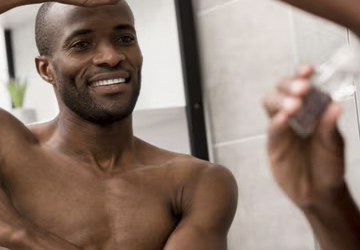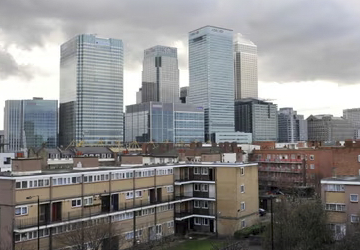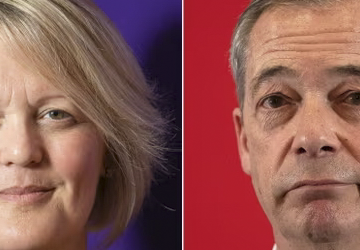Surge in Unilever’s deodorant sales after workers return to office
Workers returning to the office and socialising after pandemic lockdowns helped lead to a 15% surge in sales of deodorants, according to the maker of Dove, Rexona and Impulse.
Unilever said the shift away from home working and expansion in Latin America had helped offset heavy competition from expensive new brands in the US such as Native and Dr Squatch.

Graeme Pitkethly, the group’s finance director, said: “Many people didn’t use deodorant as much when they were in lockdown and working from home and some recovery in that is coming through.”
The recovery in deodorant sales helped Unilever’s personal care division outperform the rest of its product categories in Europe making it the only one to increase the amount of items sold. The total volume of products sold by Unilever in the continent slumped 10%, which the consumer goods company compensated for with a 13% increase in prices – rises that have prompted accusations of profiteering and so-called greedflation.
Sales of ice cream, such as Ben & Jerry’s and Magnums, were hit by the cool, wet summer and competition from supermarket own-label items as Unilever increased prices.
Worldwide, Unilever, which owns a vast array of brands from Marmite to Domestos, said total underlying sales rose 5.2% to €15.2bn (£13.2bn), led by price rises of 5.8%, while the number of items sold dipped 0.6%.
However, Hein Schumacher, the chief executive of Unilever, said the company had not increased its profit margins as it had not passed on all its cost increases to its customers.
Schumacher, who joined Unilever in July amid shareholder dissatisfaction with the pace of growth after a failed pursuit of GlaxoSmithKline’s consumer products division, said the pace of inflation was “continuing to moderate” but suggested there could be more to come.
He said Unilever was seeking to “drive simplicity and productivity”, a process which could include some factory closures, although no such plans have been finalised, and “some more pruning” of non-core brands. On Thursday the company said it was selling a majority stake in its Dollar Shave Club razor brand, which it bought for about $1bn in 2016.
The company intends to focus investment on its top 30 biggest brands – those worth €1bn or rapidly heading in that direction, including Dove, as it seeks faster growth.
Meanwhile, Unilever’s much-vaunted sustainability efforts are to be streamlined to focus on four areas: climate, nature, plastics and livelihoods. Its aim is to bring in more near-term goals, where progress can be clearly seen.
skip past newsletter promotion
Sign up to Business Today
Free daily newsletter
Get set for the working day – we'll point you to all the business news and analysis you need every morning
Privacy Notice: Newsletters may contain info about charities, online ads, and content funded by outside parties. For more information see our Privacy Policy. We use Google reCaptcha to protect our website and the Google Privacy Policy and Terms of Service apply.
after newsletter promotion
Schumacher said Unilever’s brands that had a clear social or environmental purpose-led strategy, such as Dove, would continue to develop that but the group would not “force-fit” purpose on to all its brands.
Unilever has faced criticism over its ongoing presence in Russia, where its business continues to sell locally manufactured “essential” products, from shampoo to ice-cream, after evidence emerged that it paid Moscow $331m in taxes last year.
The company has also admitted that it will comply with a local law which allows conscription of Unilever’s 3,000-strong workforce in Russia across its four manufacturing sites and head office.
Schumacher said: “I understand why there are calls to leave the country.” He reiterated that he would continue to review the situation and said the business had taken action to “minimise Unilever’s economic contribution to the Russian state” and would “continue to watch the situation closely and review our options”.



